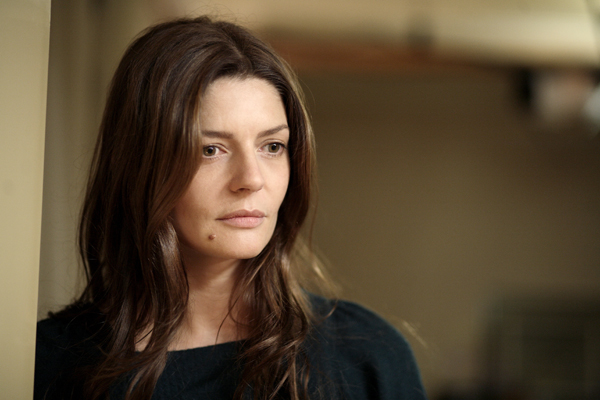|
Reviews of Recent Independent, Foreign, & Documentary Films in Theaters and DVD/Home Video

MAKING PLANS FOR LENA Director Christophe Honoré, who gave us an incestuous fantasy in Ma Mere and a modern-day musical in Love Songs, gives us something else entirely in Making Plans for Lena: a woman so real and uncertain, we make as little sense of her as she does of herself. When we meet Lena (Chiara Mastroianni) at a train station, she’s fleeing from her husband to her family home in Brittany with two young children at the hem of her miniskirt, which she wears with somewhat more certainty than she does motherhood. Lena doesn’t reveal her motivation for abandoning her marriage, but we get the sense that she’s running away to escape her muddled thoughts rather than seek refuge in her family. Her parents, two well fleshed-out creatures inhabited by Marie-Christine Barrault and Fred Ulysse, are still fiercely in love despite themselves. Their coddling takes the form of self-assured advice while her brother (Julien Honoré) offers childish antics as a distraction. Her pregnant sister (Marina Foïs), on the other hand, does her best to sour Lena’s disposition with every glum remark that brushes past the cigarette in her lips. “Can’t you be negative for once?” she asks her brother, pithily summarizing the film’s skeptical take on happiness. The family, another one of Honoré’s implacably colored-in units, is cast from the director’s rotating coterie of splendid performers. Louis Garrel of Love Songs and Ma Mere—with a Jean-Pierre Léaud quality to his sprightliness and charm—makes an appearance as Lena’s former boyfriend, but he doesn’t steal the spotlight from Mastroianni, whose tempered role in Love Songs belied her profound abilities as an actor. Honoré dabbles the film with his usual touches: light perversions (as Lena’s brother playfully rubs up against her in the buff), direct-to-the-camera narration (the father feels a sudden need to relate to the audience), and unabashed musical numbers (interjected far more naturally than you’d expect). But we also see the emergence of a disarming new element: the long, fairy tale interlude. The story of a young woman who dances her suitors to death is told with the quite sobriety of Catherine Breillat. This aside starkly bifurcates the film, which lands back on Lena in Paris, alone and increasingly aware of her despair. As the
narrative coils around Lena, the dangling plot threads—her sister’s
pregnancy, her bother’s marriage—are discarded and forgotten. We finally
get a sense of the emotional turmoil behind her quiet, easy smile, but
we don’t feel its full force until the very end, when a stirring Nina
Simone finale summarizes her sadness and defeat.
Yana Litovsky
|

